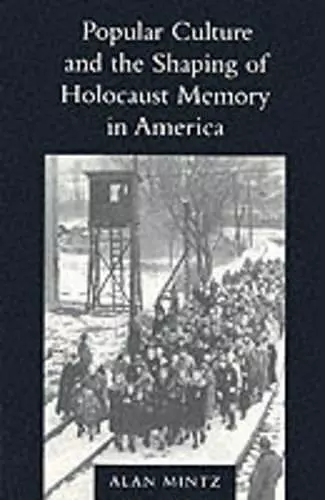Popular Culture and the Shaping of Holocaust Memory in America
Format:Paperback
Publisher:University of Washington Press
Published:1st Jun '01
Currently unavailable, and unfortunately no date known when it will be back
This paperback is available in another edition too:
- Hardback£95.00(9780295996134)

A fascinating study of how the Holocaust became a central and dramatic concern in American public discourse
Examines reactions to three films: "Judgement at Nuremberg" (1961), "The Pawnbroker" (1965), and "Schindler's List" (1992), and considers what those reactions reveal about the place of the Holocaust in the American mind, and how those films have shaped the popular perception of the Holocaust.
The Holocaust took place far from the United States and involved few Americans, yet rather than receding, this event has assumed a greater significance in the American consciousness with the passage of time. As a window into the process whereby the Holocaust has been appropriated in American culture, Hollywood movies are particularly luminous. Popular Culture and the Shaping of Holocaust Memory in America examines reactions to three films: Judgment at Nuremberg (1961), The Pawnbroker (1965), and Schindler’s List (1992), and considers what those reactions reveal about the place of the Holocaust in the American mind, and how those films have shaped the popular perception of the Holocaust. It also considers the difference in the reception of the two earlier films when they first appeared in the 1960s and retrospective evaluations of them from closer to our own times.
Alan Mintz also addresses the question of how Americans will shape the memory of the Holocaust in the future, concluding with observations on the possibilities and limitations of what is emerging as the major resource for the shaping of Holocaust memory—videotaped survivor testimony. Popular Culture and the Shaping of Holocaust Memory in America examines some of the influences behind the broad and deep changes in American consciousness and the social forces that permitted the Holocaust to move from the margins to the center of American discourse.
"Mintz's insights give pause for thought on matters of great interest to educators, parents, and the Jewish community as a whole, in addition to scholars in a range of fields, including literary studies, American studies, film studies, and popular culture as well as Holocaust studies."oNaomi Sokoloff, University of Washington "The questions and issues Mintz raises throughout his book take the study of these texts to a sophisticated yet sensible new level. Mintz challenges the assumption that there are automatic lessons to be learned from such memory, or that there can be any redemption in such memory. These are crucial insights which deserve the widest possible audience."oJames E. Young, University of Massachusetts at Amherst (author of The Texture of Memory and At Memory's Edge.)
ISBN: 9780295981611
Dimensions: unknown
Weight: 272g
222 pages